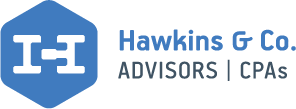From Start-up to Fast Growing Young Company
If you’ve visited us in 2017, you’ll have noticed we’ve been under construction. Our landlord (a wonderful person and good friend) persuaded us it was time to take the vacant space next to us. OK, we needed it anyway. But….well, you probably know what it’s like living through a renovation.
As I thought about this, I realized how lucky we are – to be expanding our space, after only three years as an independent accounting firm. We’ve been honoured to welcome many new clients. We’ve grown from 3 people on Day 1 (Allison, me, and Susana) to seven, plus 2 co-op students.
Life is very different from when we first opened. We’ve now transitioned from “start-up” to “fast-growing young company”. A perfect topic for a blog post…
So what’s different? Here are my top 5 lessons. I hope they’re useful.
- Let go, carefully
Back in the day…. Allison and I did most of the work, with Susana carrying the rest.
Phase 2: Susana (closely followed by Paul) did much of the work – but Allison and I still reviewed everything. And I mean everything: not just the client deliverables or letters to Canada Revenue. I mean all the underlying working documents. For example, making sure that donation receipts had been correctly keyed in.
We’re now in Phase 3. We now have another layer of staff who do some of the more basic tasks – and are supervised and their work reviewed by Paul and Susana. Allison and I are looking at the deliverables and key risk areas only. Not necessarily looking at everything.
Phase 4 is when our senior staff can send out material without an explicit partner sign-off.
The big leap of faith comes when you don’t look at everything. This is hard for those with control-freak tendencies (sadly, many accountants I know). You have to focus on what’s important – especially from your client’s perspective. And make sure you have good people, and train and support them. See also #2.
- It’s all about the process
Process is vital if you want to grow, but still maintain your values and the quality of your work product.
We’d been open about a year before I realized I couldn’t keep it all in my head. I made one mistake (thankfully minor, no consequence) when I confused one client’s filing deadline with another. Then I realized we had to put structure around things.
We’ve also found this is key when you bring in new people. You have to create institutional memory – or “How we do things around here”. So…. we have spent a lot of time over the past 18 months agreeing the best way to do things. We have checklists on how to complete a client’s month-end (tailored for each client), year-end and personal tax return.
- How to create memories
And – crucially – we’ve spent time on how to control all this information. This means both the specific client work (so we can go back to what we issued and revisit why / pull documents if needed by banks, owners, etc.) and also our internal documentation (policies, training, meeting notes).
This in itself is a separate challenge. We have documentation on how to prepare a tax return, how to handle a particular issue with Canada Revenue, how to link two pieces of software together, how to train a client on a particular task. Our server was turning into an unstructured mess, and the other apps we were using were just complicating things. At the last count, we’re on our 4th iteration of how we control all the information and be able to find it when we need it. We hope the current model – GoogleDrive and Solve 360 – will last for a while.
Get this right, and you can run a finely tuned machine. Get it wrong, and the wheels fall off.
[Cue voiceover: “Wow, you sound just like an accountant.”]
I know this sounds really boring. Only accountants could get excited about this stuff. But look at it this way: Because everybody knows what to do and where to find stuff, the business can run without Allison or me. So we can take vacation. Or leave to sail around the world for 6 months. (In theory). And…. if you can leave for 6 months… you have a business you can sell that’s not dependent on you being there.
- Growth is expensive.
Here’s the other challenge: Even if you’re blessed with growth…. it doesn’t necessarily generate its own cash. At least, not at first. Fast growth can be a dangerous time for any business. Not just the extra strains on management – but also on the finances.
Here’s why extra revenue doesn’t immediately help the bottom line: 
You’re investing.
For a manufacturer, this means you’ve bought extra equipment, etc. that has to be paid for (at least partly) before it generates money. At H&Co, we’ve spent a lot of time on working out how to do things. We recently worked out the billable value of the time we invested in our process last year. It was significant – about the salary cost of 1 or 2 people.
We also hired Darlene – our amazing office manager – who actually runs the place. She doesn’t do billable work – but we couldn’t work without her.
Plus, the age-old question: Do you get the resources in place so you can handle the work when it comes in? Or do you win the work, then hope you can service it? We went with the first choice.
Sometimes money goes out before it comes in.
As you know, staff like to be paid when they work. But often you get paid some time after the work is done. In the meantime, you’ve had to fund those salaries. More people, more salaries – meaning you have to find more money until your clients pay you. This can often strain a growing business.
- MOST IMPORTANTLY….Remember why you’re doing this.
A few times, we’ve had to pull back from something and ask, “Why are we doing this? Is this true to what we started out to do?”
We’ve always tried to build our process around looking after our clients. So it’s absolutely key that our clients know that we are on top of things. Not necessarily every little detail (see point 1), but everything that matters.
Fortunately, Allison had the wisdom to enroll us in a vision exercise in the early days . http://hawkins-accounting.ca/the-benefits-of-having-a-vision-zingermans-creating-a-vision-of-greatness-seminar/ I can’t overemphasize how important this has been. It has made it a lot easier to make sure we understand what we stand for and why we do things. I’ve seen a few people lose their “Why”, and then the wheels fall off.
Hope that was worth reading. The journey is fun. Sometimes a bit tiring. But it’s extremely rewarding. I hope you can enjoy the same feeling.
Kind rgds,
Jules


